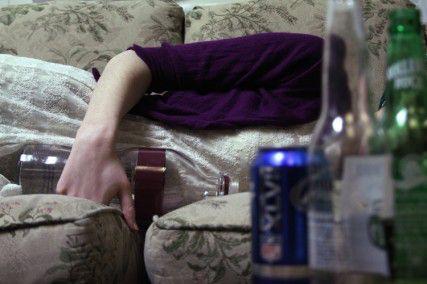
A group of students are pushing for Boston University officials to revamp medical amnesty policies and develop a program where students can request medical assistance for friends suffering from illnesses due to alcohol or drugs use without facing punitive action.
However, BU officials said their stance on amnesty has not changed.
“We felt that the way the memorandum is now, it generates enough uncertainty for students to fear calling for help if they are underage drinkers,” said College of Communication sophomore Tania Faruqi. “The wording is pretty vague and, according to the policy, each student would be reviewed on a case-by-case basis.”
The group began as an Introduction to Communication Writing class project based on creating a medical amnesty program and expanded into what will become a formal proposal to the administration, Faruqi said.
The project was inspired by the death of College of Engineering freshman Anthony Barksdale II death on March 2, which Faruqi said has been rumored to be due to excessive consumption of alcohol.
After researching BU’s current policy, Faruqi said her group found some challenges it presents.
The current policy on medical emergencies states any student who seeks medical assistance for someone due to an illegal and dangerous use of alcohol or drugs “ordinarily will not be subject to University disciplinary sanctions” if the student completes an education and counseling program, according to the BU Lifebook.
Faruqi said her group, which created a Facebook poll on Sunday, hopes to gather enough data on student awareness of BU’s current policy to petition the administration for campus-wide amnesty.
Dean of Students Kenneth Elmore said the petition would eliminate BU officials’ ability to individually meet with students following an incident.
“We give individuals the opportunities to tell their specific stories, and that’s why we like to do it on a case-by-case circumstance,” Elmore said. “I would hate for someone to be in the circumstance where they are victimized or there are other problems associated and we don’t investigate that because we automatically guaranteed amnesty.”
Aditya Rudra, Student Government president and School of Management junior, said the administration has been clear in its refusal to implement a medical amnesty policy, something SG has attempted to change.
“Being a student government of a private institution is hard,” he said. “We aren’t able to go to the legislature or any other body to make change or pressure the administration. In our perspective, [medical amnesty] is dead in the water.”
SG members last took a proposal for an official medical amnesty policy to administration in September, which was rejected, Rudra said.
“This [medical amnesty] is about accountability as an adult — we [the administration] can’t absolve people from their own personal responsibility,” Elmore said. “I don’t think the university is willing to say we’ll accept responsibility for your personal choice. We think that your personal choice has to be yours.”
Still, Elmore said he remains optimistic that students will call for help when needed, despite the policy.
“Given the choice of watching someone die or getting into trouble — and in this case trouble means you have to chat with someone about it — I really hope that someone will make the right decision,” he said.
KC Mackey, a Students for Sensible Drug Policy representative who has worked on past BU medical amnesty campaigns, said while students might have been indoctrinated to put themselves ahead of others, a medical amnesty policy would stop self-interested concerns.
“It’s all about a policy that eliminates fear and empowers students to make a choice that they might otherwise hesitate to make,” Mackey, a College of Arts and Sciences senior, said.
Elmore said administrators believe the current approach works because it demands students to be responsible adults and to make their own choice about potential consequences.
He said he hopes that in dealing with concerns of needing medical assistance, students can learn to think ahead.
“I hope we can engage people in a conversation about how you can go out with a friend and let them get to that point,” he said. “I hope that people are able to push back a little bit and say to themselves ‘We should just be a little bit mindful of each other and be able to manage ourselves.’”
This is an account occasionally used by the Daily Free Press editors to post archived posts from previous iterations of the site or otherwise for special circumstance publications. See authorship info on the byline at the top of the page.




1. How many students have gotten into serious trouble when calling for help for a friend?
2. Any student that is worried about a friend can always make and anonomous call.
this debate seems to be meaningless